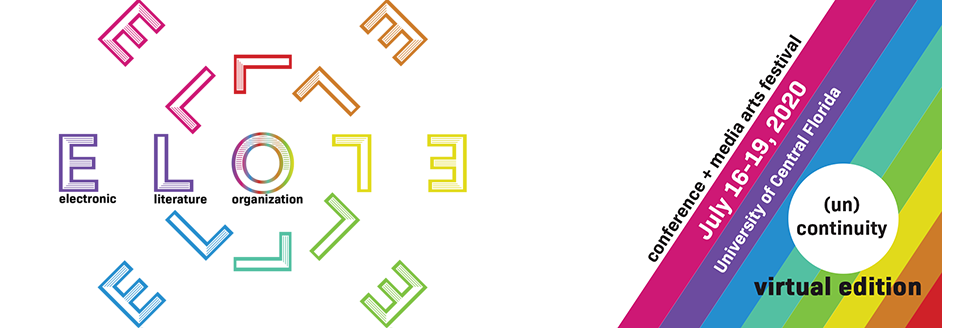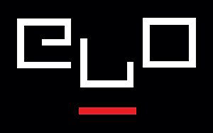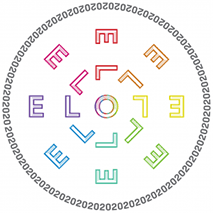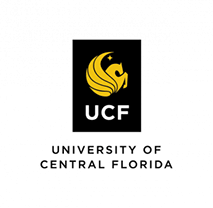Loading...
Submission Type
Conference Talk - Individual
Abstract
For decades we have made stories and poems out of code. Code has also become part of the content of works, as in the poetry of Mark C. Marino is a writer and scholar of electronic literature living in Los Angeles. His works include “a show of hands” (http://hands.literatronica.net), “Living Will” (http://markcmarino.com/tales/livingwill.html), and "The Ballad of Workstudy Seth" (http://www.springgunpress.com/the-ballad-of-workstudy-seth). With Rob Wittig, he is a co-founder of Meanwhile… Netprov Studios (http://meanwhilenetprov.com). His recent work includes “Salt Immortal Sea” (http://www.lucidbard.com/elit/saltimmortalsea/) and Mrs. Wobbles and the Tangerine House (http://markcmarino.com/mrsw/), a collection of interactive stories he writes with his children. He was one of ten co-authors of 10 PRINT CHR$(205.5+RND(1)); : GOTO 10 (http://10print.org) (MIT 2013) and joined with Jessica Pressman and Jeremy Douglass on Reading Project: A Collaborative Analysis of William Poundstone's Project for Tachistoscope {Bottomless Pit} (Iowa Press 2015). His latest book, Critical Code Studies was just published by MIT Press. Mark is also the Director of Communication of the Electronic Literature Organization. He currently teaches writing at the University of Southern California where he directs the Humanities and Critical Code Studies Lab (http://haccslab.com), a colaboratory exploring the explication of computer source code. (Full portfolio here: http://markcmarino.com)Margaret Rhee, works from bpNichol, Alan Sondheim, and John Cayley, code has been the stuff of poetry. However, a new type of work invites readers to experience literary works through their own programming. Simply put, programming is now a form a reading in digital literary works. In this talk, I will discuss works that make programming a central part of reading. Following the conference theme, this paper will trouble the binary that separates production and presentation layers bringing the code from the former into the latter and inviting readers to engage with it. Using the techniques of critical code studies, I will demonstrate how code becomes a meaningful channel of interaction for readers.
As a precedent, I will discuss several works of electronic literature, particularly Andrew Plotkin’s adaptation of Nick Montfort’s Taroko Gorge. In that piece, Plotkin displays the code of the piece and the effects of the code side-by-side, line-by-line. The remixers of Taroko Gorge respond by engaging the code. At the end of the talk, I will present Flight of the CodeMonkeys, a new work that incorporates code as a central means of interactivity and storytelling.
Flight of the CodeMonkeys is a new original work of electronic literature that merges the code production layer with the displayed content levels, or what Espen Aarseth has called the scriptons and the textons. However, rather than merely displaying the code, “Flight of the CodeMonkeys” makes interacting with the code central to the experience of reading the story. Along with more conventional choices, the reader/player/interactor is encouraged to change the very code that creates the piece. In the storygame, set in a dystopic future, the reader player takes the role of a programmer, tasked with the correcting the code for a tyrannical AI. As the player corrects the code, signs emerge that the code may not be so benign and may in fact be hurting people. As a resistance group makes contact, the programmer must decide whether to follow the dictates of the AI, or to oppose it and risk retribution. In this work of interactive fiction, code is not merely what makes the storygame, it is the means by which the player interacts with the tale, making choices by changing or just compiling the code.
In this talk, I will argue that this story demonstrates the way code can become a medium for digital literature, not just for creators but for readers. When code becomes the substance of the story and manipulating the code is the means of interaction, code proves itself to be more than merely infrastructure for electronic literature. It is as central to expression as colors, words, movement. Consequently, this work changes the way we consider all code, how we view interaction in literature, and what counts as reading.
Flight of the CodeMonkeys: https://colab.research.google.com/drive/1abmdaEl3EbfNwkc9pIsqdRhH16RRWyhm
Coding as Reading in Digital Literature
For decades we have made stories and poems out of code. Code has also become part of the content of works, as in the poetry of Mark C. Marino is a writer and scholar of electronic literature living in Los Angeles. His works include “a show of hands” (http://hands.literatronica.net), “Living Will” (http://markcmarino.com/tales/livingwill.html), and "The Ballad of Workstudy Seth" (http://www.springgunpress.com/the-ballad-of-workstudy-seth). With Rob Wittig, he is a co-founder of Meanwhile… Netprov Studios (http://meanwhilenetprov.com). His recent work includes “Salt Immortal Sea” (http://www.lucidbard.com/elit/saltimmortalsea/) and Mrs. Wobbles and the Tangerine House (http://markcmarino.com/mrsw/), a collection of interactive stories he writes with his children. He was one of ten co-authors of 10 PRINT CHR$(205.5+RND(1)); : GOTO 10 (http://10print.org) (MIT 2013) and joined with Jessica Pressman and Jeremy Douglass on Reading Project: A Collaborative Analysis of William Poundstone's Project for Tachistoscope {Bottomless Pit} (Iowa Press 2015). His latest book, Critical Code Studies was just published by MIT Press. Mark is also the Director of Communication of the Electronic Literature Organization. He currently teaches writing at the University of Southern California where he directs the Humanities and Critical Code Studies Lab (http://haccslab.com), a colaboratory exploring the explication of computer source code. (Full portfolio here: http://markcmarino.com)Margaret Rhee, works from bpNichol, Alan Sondheim, and John Cayley, code has been the stuff of poetry. However, a new type of work invites readers to experience literary works through their own programming. Simply put, programming is now a form a reading in digital literary works. In this talk, I will discuss works that make programming a central part of reading. Following the conference theme, this paper will trouble the binary that separates production and presentation layers bringing the code from the former into the latter and inviting readers to engage with it. Using the techniques of critical code studies, I will demonstrate how code becomes a meaningful channel of interaction for readers.
As a precedent, I will discuss several works of electronic literature, particularly Andrew Plotkin’s adaptation of Nick Montfort’s Taroko Gorge. In that piece, Plotkin displays the code of the piece and the effects of the code side-by-side, line-by-line. The remixers of Taroko Gorge respond by engaging the code. At the end of the talk, I will present Flight of the CodeMonkeys, a new work that incorporates code as a central means of interactivity and storytelling.
Flight of the CodeMonkeys is a new original work of electronic literature that merges the code production layer with the displayed content levels, or what Espen Aarseth has called the scriptons and the textons. However, rather than merely displaying the code, “Flight of the CodeMonkeys” makes interacting with the code central to the experience of reading the story. Along with more conventional choices, the reader/player/interactor is encouraged to change the very code that creates the piece. In the storygame, set in a dystopic future, the reader player takes the role of a programmer, tasked with the correcting the code for a tyrannical AI. As the player corrects the code, signs emerge that the code may not be so benign and may in fact be hurting people. As a resistance group makes contact, the programmer must decide whether to follow the dictates of the AI, or to oppose it and risk retribution. In this work of interactive fiction, code is not merely what makes the storygame, it is the means by which the player interacts with the tale, making choices by changing or just compiling the code.
In this talk, I will argue that this story demonstrates the way code can become a medium for digital literature, not just for creators but for readers. When code becomes the substance of the story and manipulating the code is the means of interaction, code proves itself to be more than merely infrastructure for electronic literature. It is as central to expression as colors, words, movement. Consequently, this work changes the way we consider all code, how we view interaction in literature, and what counts as reading.
Flight of the CodeMonkeys: https://colab.research.google.com/drive/1abmdaEl3EbfNwkc9pIsqdRhH16RRWyhm




Bio
Mark C. Marino is a writer and scholar of digital literature who teaches at the University of Southern California. Mark C. Marino is a writer and scholar of electronic literature living in Los Angeles. His works include “a show of hands” (http://hands.literatronica.net), “Living Will” (http://markcmarino.com/tales/livingwill.html), and "The Ballad of Workstudy Seth" (http://www.springgunpress.com/the-ballad-of-workstudy-seth). With Rob Wittig, he is a co-founder of Meanwhile… Netprov Studios (http://meanwhilenetprov.com). His recent work includes “Salt Immortal Sea” (http://www.lucidbard.com/elit/saltimmortalsea/) and Mrs. Wobbles and the Tangerine House (http://markcmarino.com/mrsw/), a collection of interactive stories he writes with his children. He was one of ten co-authors of 10 PRINT CHR$(205.5+RND(1)); : GOTO 10 (http://10print.org) (MIT 2013) and joined with Jessica Pressman and Jeremy Douglass on Reading Project: A Collaborative Analysis of William Poundstone's Project for Tachistoscope {Bottomless Pit} (Iowa Press 2015). His latest book, Critical Code Studies was just published by MIT Press. Mark is also the Director of CommunicatioMark C. Marino is a writer and scholar of electronic literature living in Los Angeles. His works include “a show of hands” (http://hands.literatronica.net), “Living Will” (http://markcmarino.com/tales/livingwill.html), and "The Ballad of Workstudy Seth" (http://www.springgunpress.com/the-ballad-of-workstudy-seth). With Rob Wittig, he is a co-founder of Meanwhile… Netprov Studios (http://meanwhilenetprov.com). His recent work includes “Salt Immortal Sea” (http://www.lucidbard.com/elit/saltimmortalsea/) and Mrs. Wobbles and the Tangerine House (http://markcmarino.com/mrsw/), a collection of interactive stories he writes with his children. He was one of ten co-authors of 10 PRINT CHR$(205.5+RND(1)); : GOTO 10 (http://10print.org) (MIT 2013) and joined with Jessica Pressman and Jeremy Douglass on Reading Project: A Collaborative Analysis of William Poundstone's Project for Tachistoscope {Bottomless Pit} (Iowa Press 2015). His latest book, Critical Code Studies was just published by MIT Press. Mark is also the Director of Communication of the Electronic Literature Organization. He currently teaches writing at the University of Southern California where he directs the Humanities and Critical Code Studies Lab (http://haccslab.com), a colaboratory exploring the explication of computer source code. (Full portfolio here: http://markcmarino.com)n of the Electronic Literature Organization. He currently teaches writing at the University of Southern California where he directs the Humanities and Critical Code Studies Lab (http://haccslab.com), a colaboratory exploring the explication of computer source code. (Full portfolio here: http://markcmarino.com)He is the Director of Communication of the Electronic Literature Organization (http://eliterature.org). His works include “Living Will,” “a show of hands,” and “Marginalia in the Library of Babel.” He was one of ten co-authors of 10 PRINT CHR$(205.5+RND(1)); : GOTO 10 (http://10print.org) (MIT 2013) and was a collaborator with Jessica Pressman and Jeremy Douglass on Reading Project: A Collaborative Analysis of William Poundstone's Project for Tachistoscope {Bottomless Pit} (Iowa Press 2015). His latest book, Critical Code Studies, is forthcoming from MIT Press.